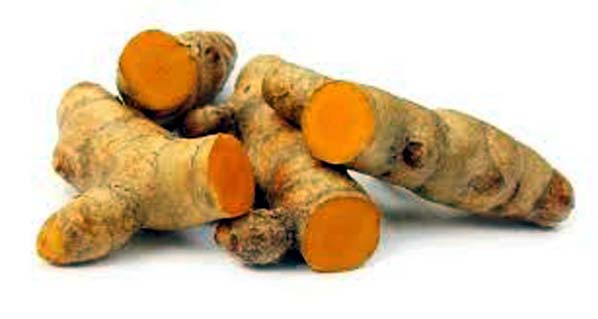
This Common Spice May Help Boost Memory You would have never known that your spice cabinet secretly holds the best remedies for some of the most common ailments. Spices can not only turn around a boring meal but they can also heal your body naturally.
Turmeric is one such spice that comes from the root of the Curcuma plant. Since ancient times, it has been used to heal wounds and cure stomach ailments.
The active compound curcumin found in turmeric is known to have various positive effects like anti-inflammatory, antioxidant, antibacterial, and antiviral activities. (Fight Infections and Boost Your Immunity with Turmeric)
A previous study conducted by the Institute of Neuroscience and Medicine in Germany showed that this humble ingredient improves brain’s ability to heal itself and helps in treating neurological disorders such Alzheimer’s disease. A latest study published in the Asia Pacific Journal of Clinical Nutrition finds that daily consumption of a gram of turmeric during breakfast may help in improving memory, especially in case of those who are diabetic and are at the risk of cognitive impairment. (Turmeric May Help Treat Brain Disorders)
According the researchers at Monash Asia Institute, Monash University, there has been a rise in the incidence of conditions that predispose people to diabetes, which in turn is connected to dementia. Early intervention could help in reducing the burden, whether by halting the disease or reducing its impact.
Mark Wahlqvist and his team carried out experiments in Taiwan that involved testing the working memory of men and women aged 60 or older who had recently been diagnosed with untreated pre-diabetes. “Working memory is widely thought to be one of the most important mental faculties, critical for cognitive abilities such as planning, problem solving and reasoning,” he said. “Assessment of working memory is simple and convenient, but it is also very useful in the appraisal of cognition and in predicting future impairment and dementia,” said Wahlqvist.
In the placebo-controlled study, subjects were given one gram of turmeric with an otherwise nutritionally bland breakfast of white bread.
Their working memory was tested before and after the meal. Wahlqvist concludes, “We found that this modest addition to breakfast improved working memory over six hours in older people with pre-diabetes. Our findings with turmeric are consistent with these observations, so far as they appear to influence cognitive function where there is disordered energy metabolism and insulin resistance.”- NDTV
Turmeric is one such spice that comes from the root of the Curcuma plant. Since ancient times, it has been used to heal wounds and cure stomach ailments.
The active compound curcumin found in turmeric is known to have various positive effects like anti-inflammatory, antioxidant, antibacterial, and antiviral activities. (Fight Infections and Boost Your Immunity with Turmeric)
A previous study conducted by the Institute of Neuroscience and Medicine in Germany showed that this humble ingredient improves brain’s ability to heal itself and helps in treating neurological disorders such Alzheimer’s disease. A latest study published in the Asia Pacific Journal of Clinical Nutrition finds that daily consumption of a gram of turmeric during breakfast may help in improving memory, especially in case of those who are diabetic and are at the risk of cognitive impairment. (Turmeric May Help Treat Brain Disorders)
According the researchers at Monash Asia Institute, Monash University, there has been a rise in the incidence of conditions that predispose people to diabetes, which in turn is connected to dementia. Early intervention could help in reducing the burden, whether by halting the disease or reducing its impact.
Mark Wahlqvist and his team carried out experiments in Taiwan that involved testing the working memory of men and women aged 60 or older who had recently been diagnosed with untreated pre-diabetes. “Working memory is widely thought to be one of the most important mental faculties, critical for cognitive abilities such as planning, problem solving and reasoning,” he said. “Assessment of working memory is simple and convenient, but it is also very useful in the appraisal of cognition and in predicting future impairment and dementia,” said Wahlqvist.
In the placebo-controlled study, subjects were given one gram of turmeric with an otherwise nutritionally bland breakfast of white bread.
Their working memory was tested before and after the meal. Wahlqvist concludes, “We found that this modest addition to breakfast improved working memory over six hours in older people with pre-diabetes. Our findings with turmeric are consistent with these observations, so far as they appear to influence cognitive function where there is disordered energy metabolism and insulin resistance.”- NDTV

